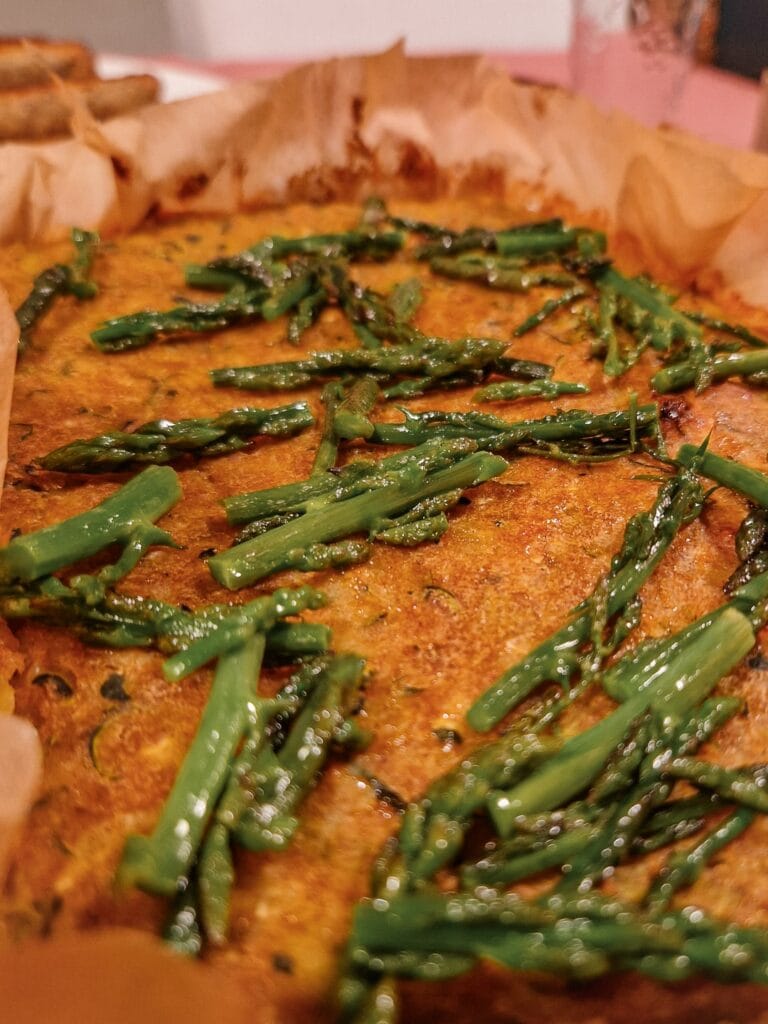
In our second week in Portugal, neighbour João came by to bring things for the olive harvest. He invited us to accompany him for a walk around our own land, so that he could teach us which wild plants we could eat. He was specifically referring to mushrooms, but to our surprise also talking about asparagus. It turned out that they were growing right under our noses.
Prickly shrubs
Scattered all over our grounds, even right next to the pool, are growing terribly spiky bushes. We had already scolded it a bit, because we had hurt ourselves on them. Why would you want to leave these to grow? João’s visit made it clear: this was the asparagus albus. If you don’t live in southern Europe, nor are you a biologist, you’ve probably never heard of this plant. But among the Portuguese, it’s a traditional delicacy, which you have to harvest any chance you get.
Omelette with a touch
João used a knife to cut off the asparagus we found along the way. “You shouldn’t pick them anymore if they’re already getting prickly,” he warned. We did our best to tell the difference between a good and a bad asparagus, but our eye wasn’t properly trained yet. He told us that you have to cut off small pieces from the top, until you reach the hard part of the asparagus. You shouldn’t eat the rest of it. The cut, soft pieces are then fried in an omelette, according to the classic recipe. But it can also be used in soup.

Intruder
In the meantime we had arrived at the far edge of our property. Suddenly, there were no more asparagus to be found. João grinned that they had already been picked here by someone else. Probably climbed over our wall. We looked at each other in amazement. Are those asparagus so special that you secretly go on someone’s land for them? Not many days later, João’s suspicions were confirmed. Early in the morning, Irma discovered an intruder on our land. He quickly climbed back over the wall, leaving behind the asparagus he had picked from us.
In the absence of eggs for an omelette, we tried the asparagus on top of a quiche. Tasted fine, but not something to climb over a wall for in our opinion. Nevertheless, how special is it to discover unknown types of food on your own land?!









